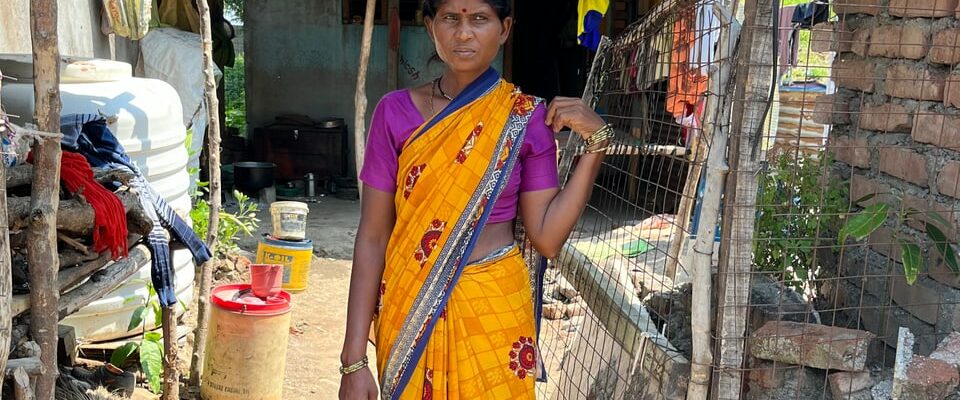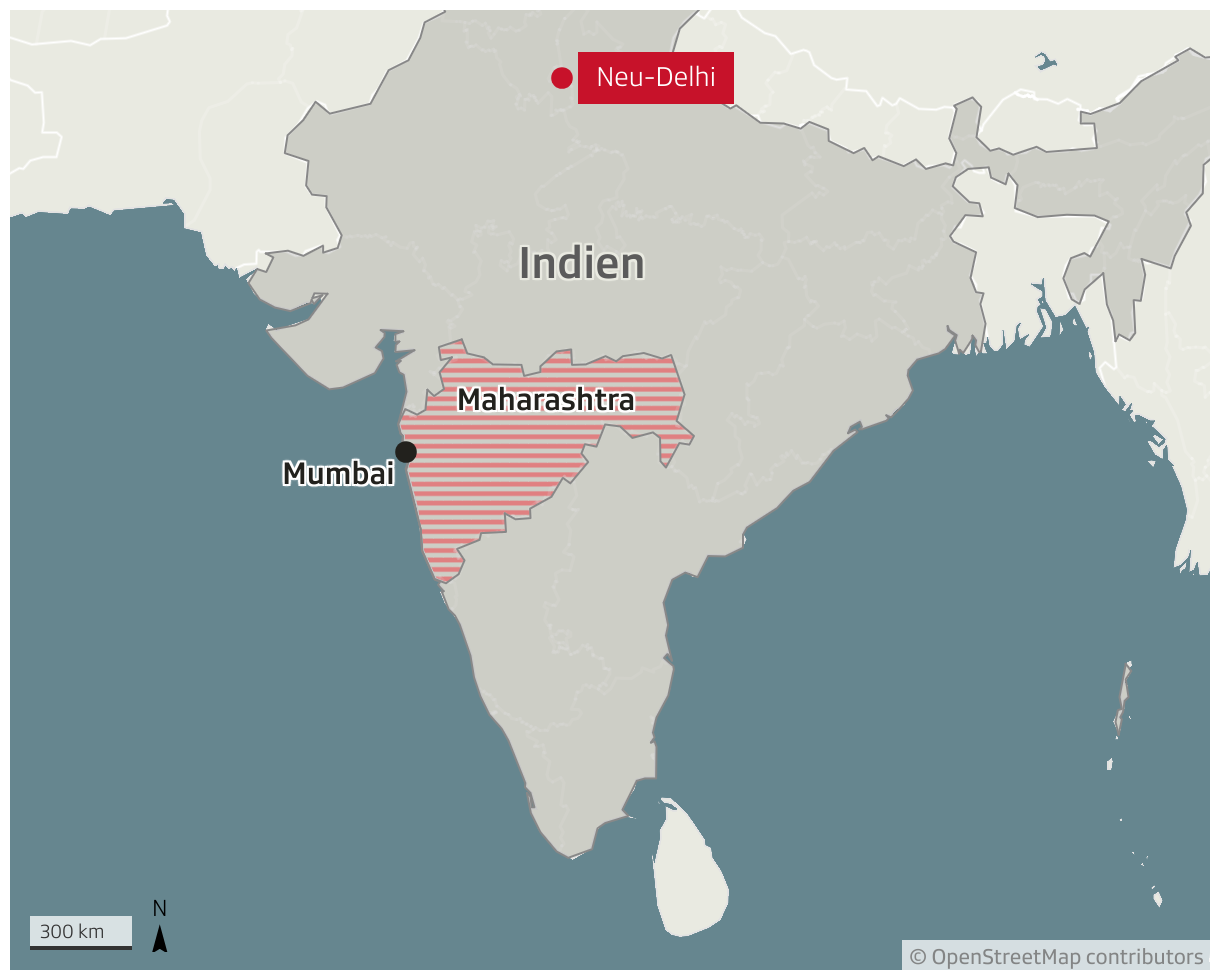The dry cough has been plaguing Asha Sundar Ughade for days. But compared to her chronic illnesses, the cough is the least of her problems. «My body is weak. Everything hurts me,” says the 35-year-old woman. In her yellow sari, she squats on the bare clay floor in front of her house. Ughade lifts a steel jug and pours some water over the toes of her left foot. They hurt her too.
Legend:
Asha Sundar Ughade in front of her house. She will soon pack her few belongings onto a trailer and go to work in the sugar cane fields for six months.
SRF
Asha Sundar Ughade is one of the almost million workers who leave their villages in the state of Maharashtra every October for around six months to work in the sugar cane fields on the border with the neighboring state of Karnataka. Your own fields are too dry.
Ughade points to a few plastic sheets that are stuck under the roof of her poor house: In a few days she will put them back on the truck, take them to the sugar cane fields and build a tent out of them. This will be their shelter for the next few months. A shelter without a toilet, without running water – for the whole family.
Married at twelve years old
She was married at the age of twelve, says the woman with expressionless eyes. Like most others in the village, the new couple then work together in the sugar cane fields: cutting sugar cane, bundling it and throwing it onto the waiting truck. Your day starts at 2:30 a.m. and lasts up to 16 hours. A bundle of sugar cane weighs up to 35 kilos. That’s actually too much for a small woman.
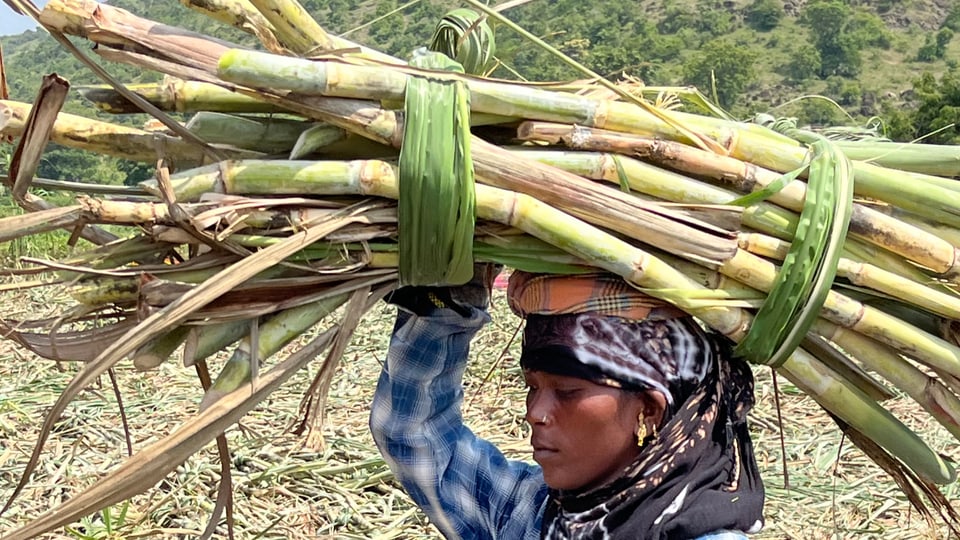
Legend:
The workers drag heavy bundles of sugar cane to the waiting truck. A bundle weighs up to 35 kilograms.
SRF
When she was 13, her first child was born. When the third one arrives, Asha Sundar Ughade is still a teenager.
I also carried the small children on my back.
She is in the field until she gives birth. And just a few days after the births, work continues. “I also carried the small children on my back,” says Ughade. “Where else would I have left her?”
If you don’t work, you don’t earn any money. And he also has to pay a fine to the owner of the sugar factory, the Sugar Lord. The threat of punishment is the reason why women do not stop their hard work even during menstruation. Four days a month that can become torture. There are no toilets in the fields.
Persistent pain
“We use strips of cloth to catch the blood. But we don’t have time to change them while we’re working,” says Asha Sundar Ughade. Often they don’t even have time to wash the sanitary pads in the evening. And even if they did: they didn’t dry and remained dirty. The result: frequent inflammation in the abdomen.
At some point the pain came. They didn’t stop anymore. A doctor in a private hospital warns of cancer. And advises removing the uterus. “The doctor said: There is no alternative.” Asha Sundar Ughade is just 22.
After the operation, she cannot sit, let alone work, for two months. The pain remains. The coughing young woman says she had to pay 70,000 rupees for the operation and follow-up treatment, the equivalent of 760 francs. The family takes out a loan. It will take three years to pay it back.
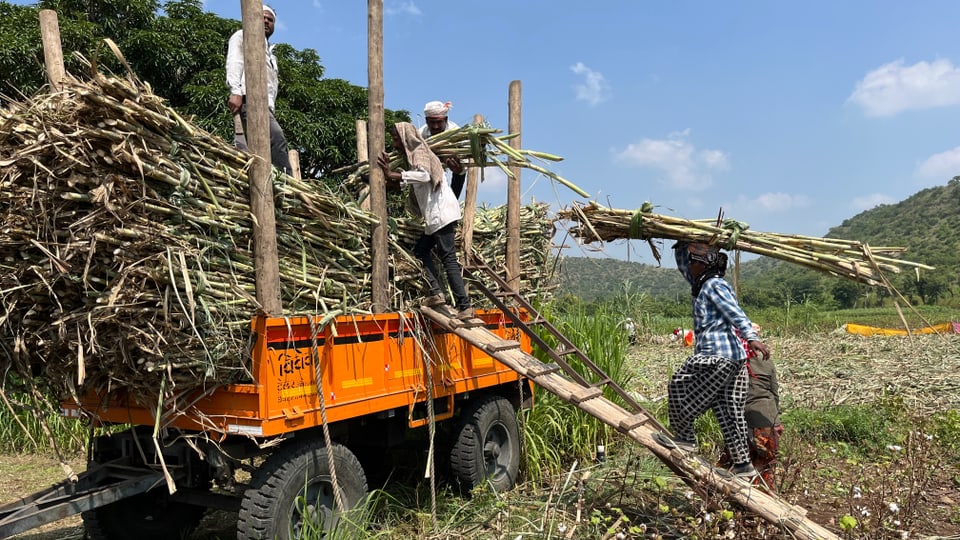
Legend:
The work is only finished when the truck is full. A working day can last up to 16 hours.
SRF
A few villages further, an hour’s drive away: ten women in colorful saris are sitting on the floor of a community center. Paintings on the outside wall warn against child marriages. But it is already too late for these women too: they were all married at the age of eleven or 12, they have all been working with their husbands in the sugar cane fields since then, and they all no longer have a uterus. The stories are similar, for generations.
“I was 24 when my uterus was removed,” says Indu Santram Gorde. “I had stomach pain. The doctor in the private hospital said: The uterus has to come out.” Why exactly? She does not know. The woman with the golden nose stud has also had chronic pain since the operation more than ten years ago. The doctor gives medication. “It’s good for a few days, then it starts all over again,” says the woman in her mid-thirties.
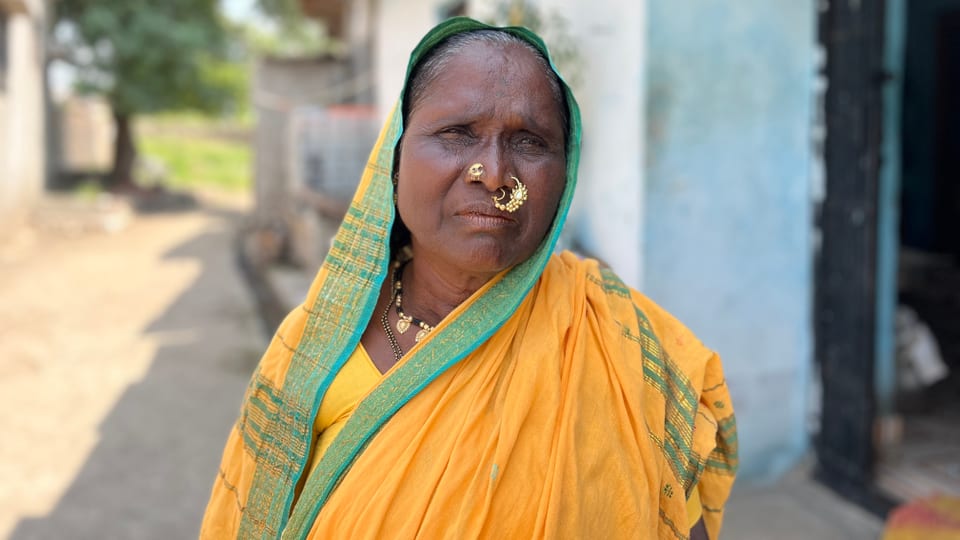
Legend:
The doctor told Bachabhai Sambhaji Sapte that she might get cancer and advised £removal of the uterus.
SRF
A study by the University of Pune shows that a third of all workers in Indian sugar cane fields no longer have a uterus. Half of them also have problems after the operation: back pain, foot pain, incontinence, insomnia.
Nobody informs women about the risks
A simple restaurant on a road that leads to the village: This is where Arundati Patil rests after a strenuous morning in the villages. The lecturer and social worker from the non-governmental organization Manavlok has been fighting against child labor and for better health for sugarcane women for years.
“The women hope that with the uterus they will also get rid of all other problems and that they can work better without menstruation,” says Patil. In order to lose as few working days as possible, they did not go to state hospitals, where they would have to wait a long time, but to private hospitals – even though these are much more expensive. “The doctors there operate very quickly – no one tells the women about the risks.”
The government knows. But she doesn’t do anything. It is probably due to the fact that the approximately 200 sugar factories mostly belonged to politicians, says Arundati Patil. The lobby of sub-contractors and sugar lords is very strong.
26 working couples for 6,400 francs – the subcontractors’ business
One of these subcontractors, Isak Habib Pathan, is currently in the village of Anjandoh. His mission is to recruit 26 couples for the next sugar cane season. For six months of work they receive the equivalent of between 1,000 and 1,500 francs. “If I fill a car with two trailers, the owner of the sugar factory pays me 600,000 rupees,” says Pathan. The equivalent of 6,400 francs.
Pathan also knows that an above-average number of his workers have their uteruses removed. He rejects any connection with the harsh working conditions in the sugar cane fields. It is also not true that women have to pay a fine if they do not work during menstruation, as many women in the villages have said. They simply don’t get paid, says Pathan. That’s why most women worked while bleeding.
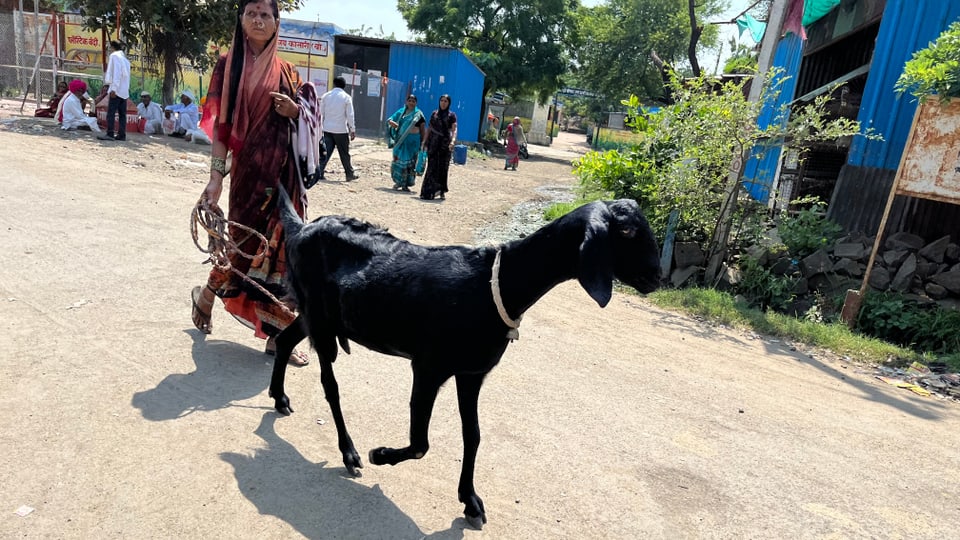
Legend:
Life in the villages of western Maharashtra is simple. Because it is too dry, the residents have been moving to the sugar cane fields for seasonal work for generations.
SRF
Asha Sundar Ughade from the village of Kasari also has to go back to the field. In a few days she will climb onto a colorfully decorated truck trailer and drive two days to the Karnataka border, to the sugar cane fields.
Her daughter will also be there. As a child, she too had to go to the field, far away from school. She was also married early. Like her mother. “It’s an eternal cycle,” says Asha Sundar Ughade. “We have no other choice.”
